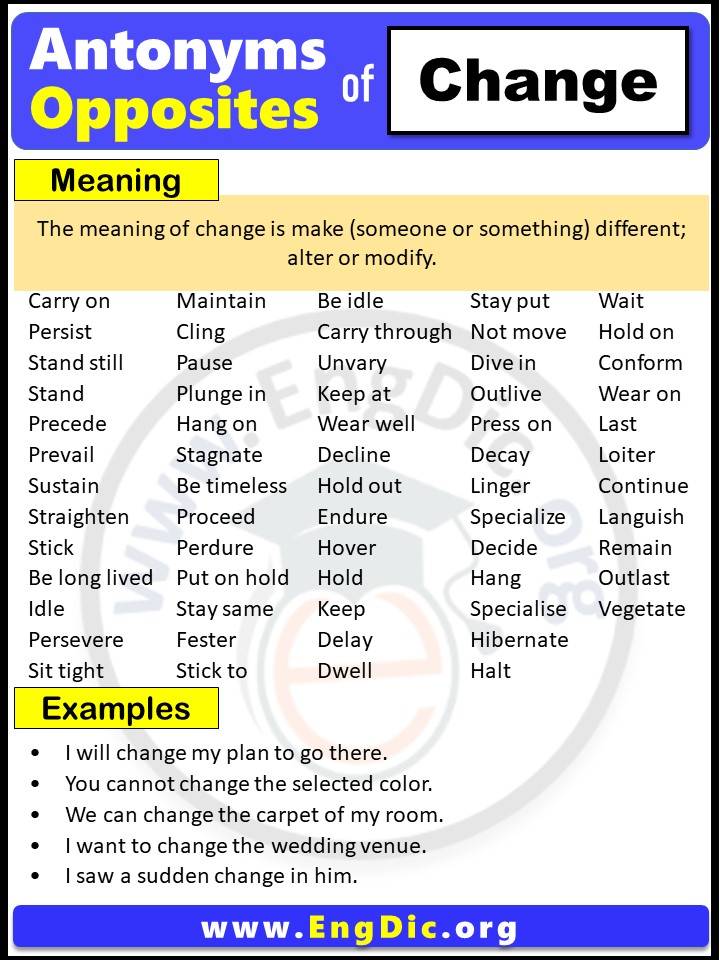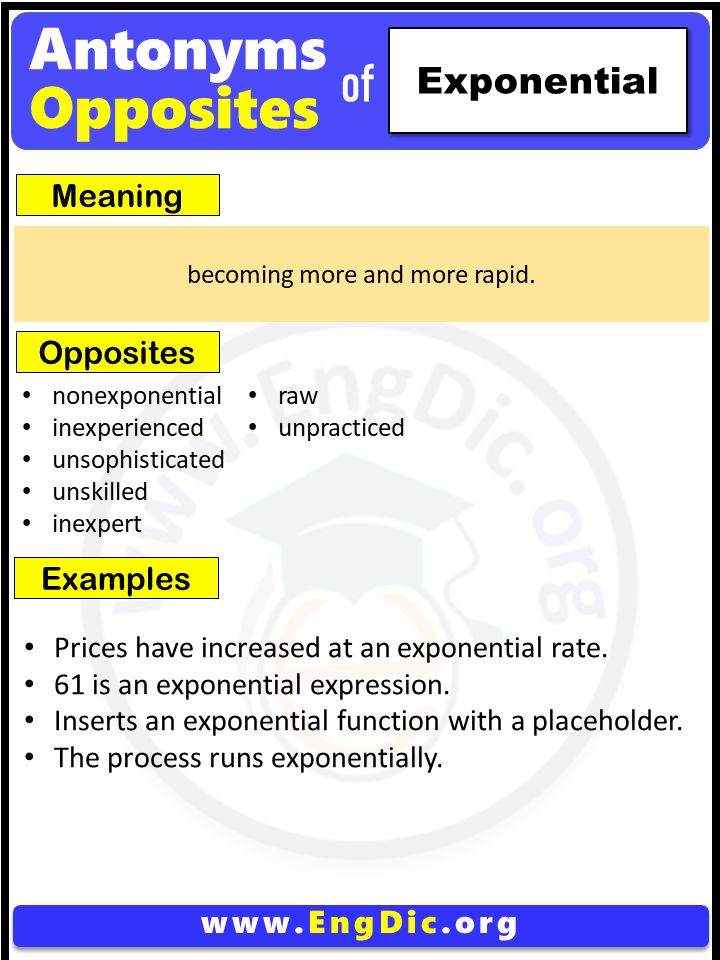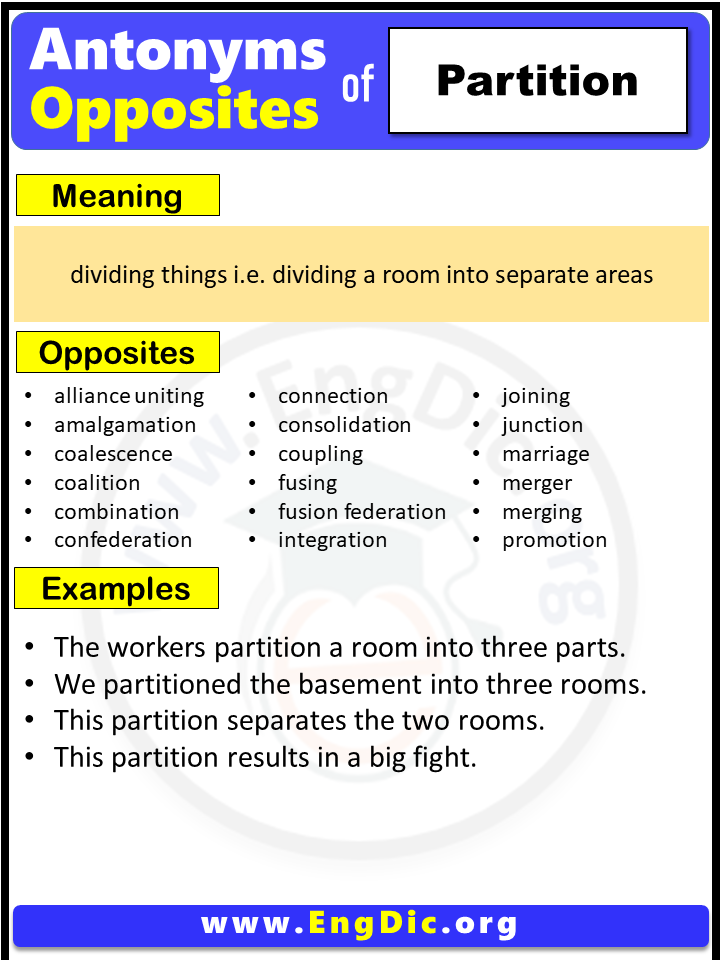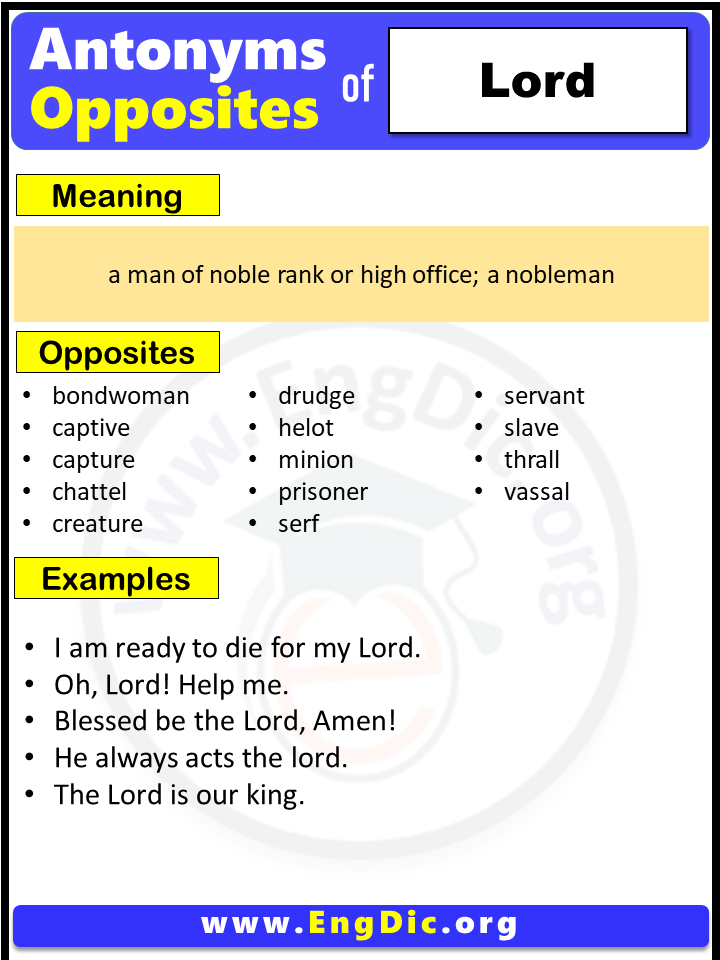Type: Verb/Noun
Meaning/Definition of change: Verb referring to the act of making or becoming different; Noun describing the process or result of alteration or modification.
What is the Opposite of change?
The Opposite of change is stasis.
Other Opposites of change:
Here is the list of all opposites or antonyms of change:
- Carry on
- Persist
- Stand still
- Stand
- Precede
- Prevail
- Sustain
- Straighten
- Stick
- Be long lived
- Idle
- Persevere
- Sit tight
- Maintain
- Cling
- Pause
- Plunge in
- Hang on
- Stagnate
- Be timeless
- Proceed
- Perdure
- Put on hold
- Stay same
- Fester
- Stick to
- Be idle
- Carry through
- Unvary
- Keep at
- Wear well
- Decline
- Hold out
- Endure
- Hover
- Hold
- Keep
- Delay
- Stay the same
- Dwell
- Remain standing
- Stall
- Grind to a halt
- Stay put
- Not move
- Dive in
- Come to a halt
- Outlive
- Press on
- Decay
- Linger
- Specialize
- Decide
- Hang
- Specialise
- Hibernate
- Halt
- Go on
- Wait
- Hold on
- Conform
- Wear on
- Last
- Loiter
- Continue
- Languish
- Remain
- Outlast
- Vegetate
- Keep on
- Be inactive
- Stay
- Stop
- Survive
Example Sentences Using Opposites of Change:
- The lack of progress led to stagnation in the project.
- The company sought stability in its operations to ensure steady growth.
- The continuity of their efforts allowed them to achieve long-term success.
- They aimed for permanence in their relationships and commitments.
- The focus was on the preservation of traditions and cultural heritage.
- The invariability of their routine brought a sense of comfort.
- The fixity of their mindset limited their ability to adapt to new circumstances.
- The company valued invariableness and resisted any changes.
- The lack of innovation resulted in a sense of sameness and predictability.
- They embraced constancy as a principle to guide their actions.
Explore More Opposite Words:







